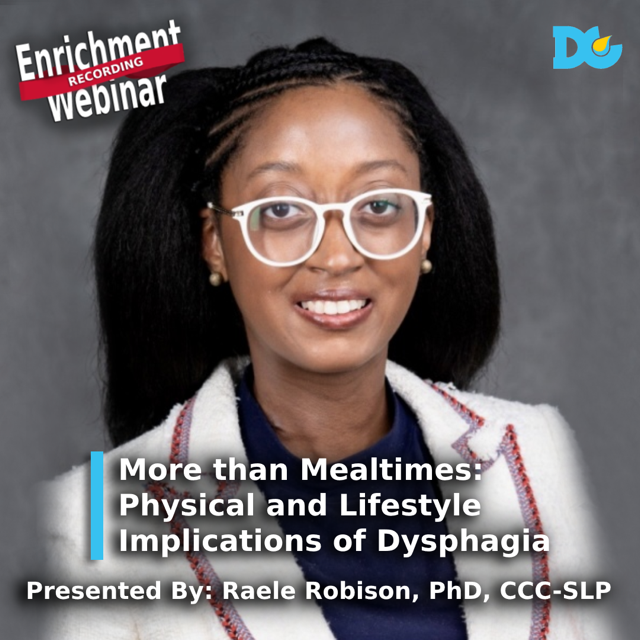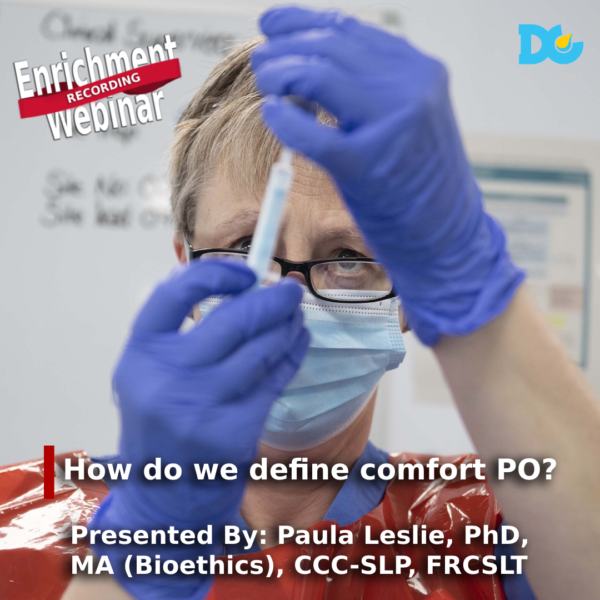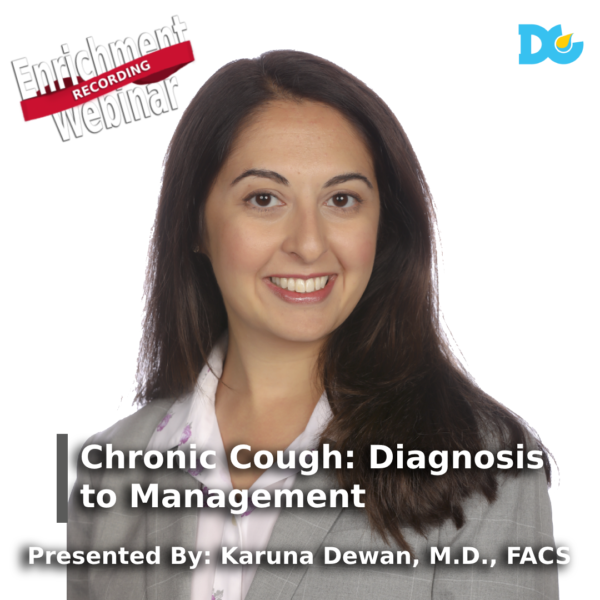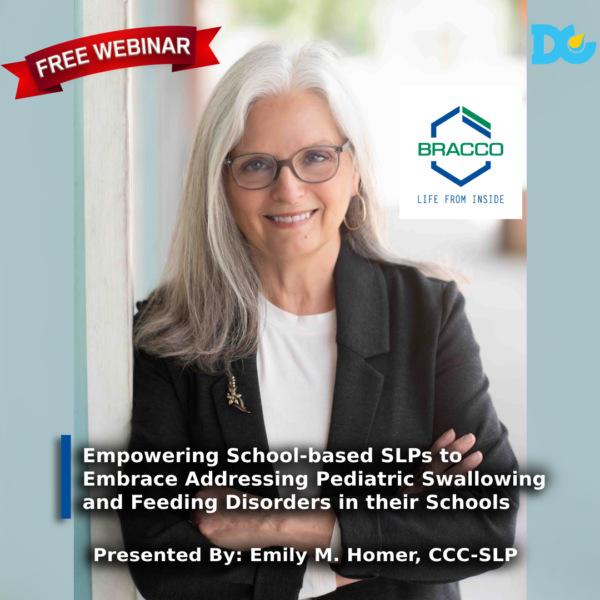Description
PRESENTER: Raele Robison, PhD, CCC-SLP
AUDIENCE: Undergraduate, graduate students, Clinical Fellows, experienced clinicians, clinicians who would like to transition from school-based SLP to medical-based SLP.
Description: Swallowing is perhaps one of the most important activities of daily living as it helps us maintain nutrition and hydration necessary for optimal function and survival. Thus, when dysphagia occurs, the effects of swallowing impairments are often multidimensional, affecting both clinician-facing factors (e.g. swallowing physiology) as well as factors more central to the individual (e.g. relationships, energy levels). In this webinar, we will discuss the physical and lifestyle implications of being unable to swallow and sustain nutrition. First, we will discuss the homeostatic and hedonistic drives for swallowing and eating. Next, we will describe how dysphagia disrupts nutritional homeostasis and the effect this can have on both physical functioning and individual personhood. We will finish with a discussion of how personal and social factors might serve as predisposing, enabling, or reinforcing factors in dysphagia trajectory and, therefore, should be considered in dysphagia management.
Webinar Objectives:
1. Discuss the biological and personal drives for swallowing and examine how dysphagia affects these drives.
2. Describe dysphagia in view of the broader contextual factors that underscore patients’ everyday life.
3. Discuss how social determinants of health and contextual factors might influence individual trajectory and overview ideas for taking these into consideration when clinical decision-making.
Presenter:
Dr. Raele Robison completed her BA degree at West Chester University in Pennsylvania and her MS degree in Speech-Language Pathology at the University of South Florida. During her time as a master’s student, Dr. Robison completed a thesis under Dr. Emily Plowman investigating the impact of lingual resistance training in individuals with amyotrophic lateral sclerosis. Dr. Robison continued her academic journey when she joined the University of Florida Rehabilitation Sciences doctoral program in August 2015. Research interests included understanding the contribution of homeostatic regulatory mechanisms to the normal and disordered swallowing process. Upon graduation, Dr. Robison transitioned to the University of Wisconsin-Madison for her postdoctoral research under the direction of Drs. Nicole Rogus-Pulia and Nadine Connor. Her current research focuses on understanding how interrelated physiologic capacities throughout the body contribute to the development of dysphagia in frail adults.
This course is 1 hour and available for Professional Development Hours (PDHs) – formerly known as Certification Maintenance Hours (CMHs). Certificate of Completion is available upon request at the end of the webinar.
For More information on Professional Development Hours: https://www.asha.org/certification/factdef/
The webinar access expires in 1 year.










Reviews
There are no reviews yet.